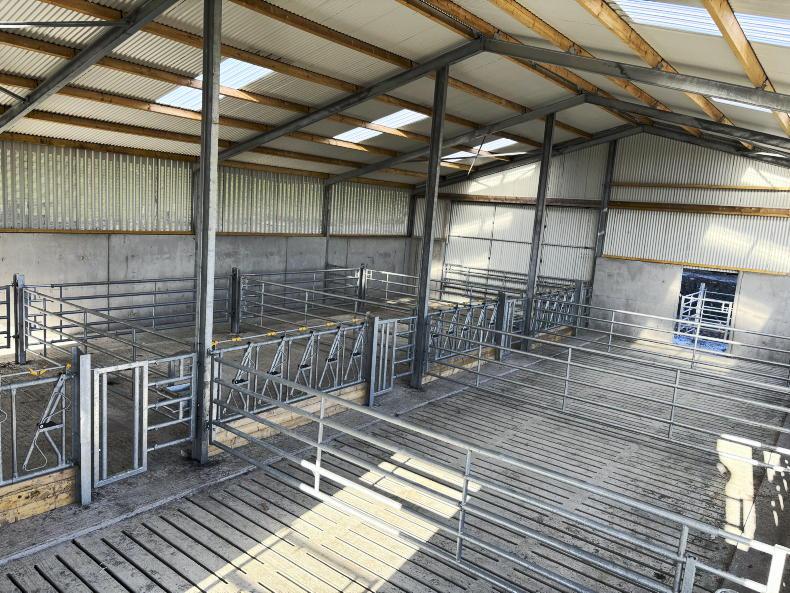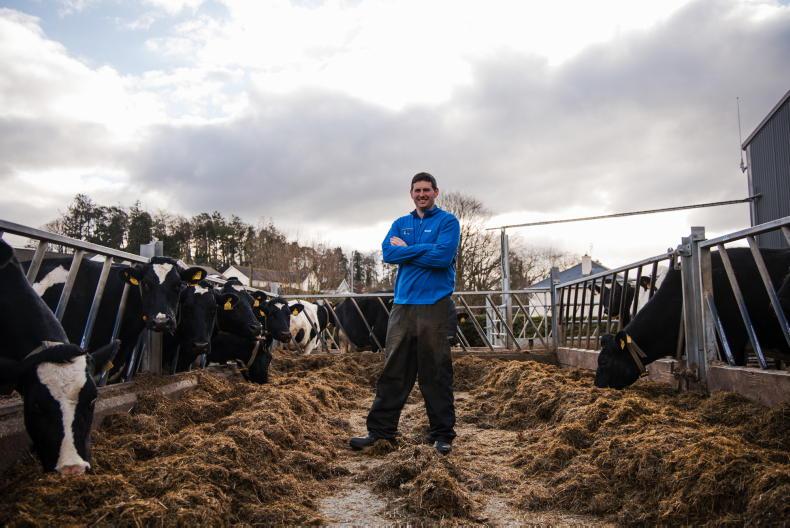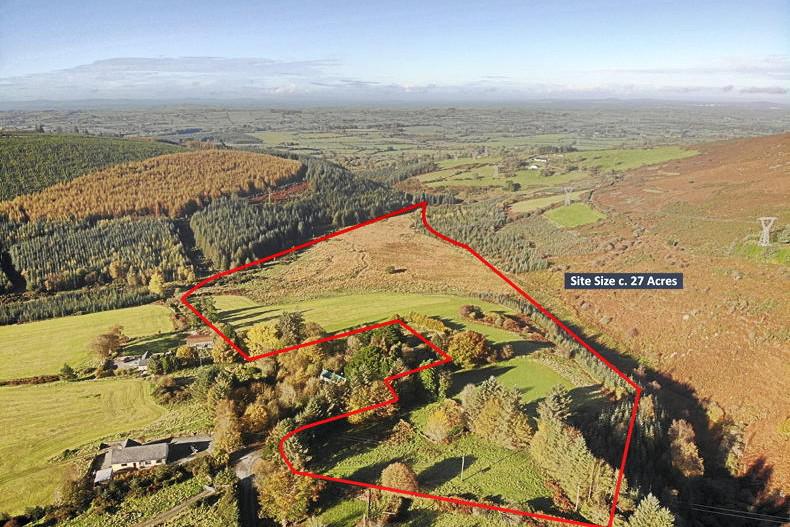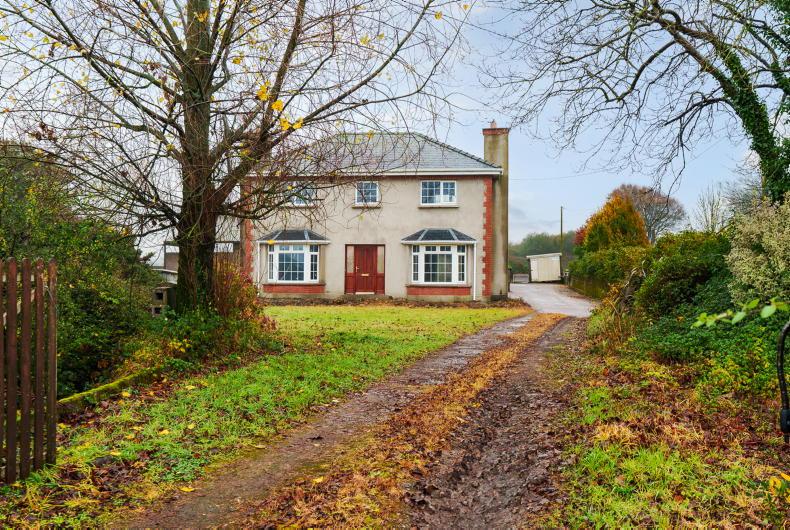“Fear na bo fhéin fé na heirbeal.”
The above seanfhocal translates from Gaeilge to Béarla as: “He who owns the cows should be willing to be at the tail.”
By its very essence, an old Irish saying, but perhaps this turn of phrase is even more pertinent in the present day.
Farmers, by the nature of their work, must live on their farms. Therefore, we can deduce that one-off rural housing is necessary for farmers to continue to produce food.
The last set of rural housing guidelines was published in 2005, Sustainable Rural Housing. Perhaps it is this 16-year hiatus since the last set of rural housing guidelines that has caused some confusion as to what exactly is the Government’s policy on one-off housing.
The National Planning Framework (NPF) released in 2018 recognises the need for “housing provision for people who live and work in Ireland’s countryside”. However, while Housing for All – the Government’s housing plan to 2030 launched last year – was billed as “for All”, it has no provisions for one-off rural housing.
A “Town Centre First” initiative, which aims to improve housing in rural towns and villages, is outlined. This was launched three weeks ago.
In the 160-page Housing for All report, one-off housing is mentioned twice. Once about what dwellings are covered under the Repair and Leasing Scheme (RLS). The other is in a sentence under the heading “For rural communities”, saying: “New rural housing guidelines to give certainty for development of one-off homes.”
These guidelines are yet to be published, but are in the pipeline. Minster of State for Local Government and Planning Peter Burke is overseeing them. Sitting down with Irish Country Living to discuss rural and one-off housing, he rejects that Government does not have a policy to accommodate one-off housing.
“We have currently on our system the Sustainable Rural Planning Guidelines of 2005. They are outdated and they haven’t been refreshed. What we are doing now is having a successor to those rural guidelines. I am very clear in debunking all the myths that one-off rural housing is being banned. It absolutely is not.
“From the large rural constituency that I am from, and as a farmer’s son, I am absolutely clear in the demand for rural housing and how it should be accommodated. It’s about having a sustainable approach. I think we can deliver that through a well thought out, fair policy, that gives people the opportunity, when they have an economic or social reason, to reside or build on their own land. We will be providing for that. I can absolutely guarantee people of that.”
Under the proposed plans, those with a viable economic or social reason could build a one-off rural house.
“Going by the NPF, is it a social need or can they demonstrate a very clear economic need – that can be a variety of businesses that can be in rural areas that someone can account for.
“It could be someone that’s a veterinary practitioner. It could be someone that has a local garage that we know is in a very rural area. Everyone might have a different need, but you have to assess what is the need.”
The Longford-Westmeath TD would not comment on whether farmers are to be specifically mentioned in the proposed guidelines or if any specific provisions are to be in place for them.
The guidelines, if enacted, would sit over County Development Plans in local authorities and provide guidance for An Bord Pleanála in planning appeals.
Outlining a timeline for the new Rural Housing Guidelines, Minister Burke expects them to be on his desk by the end of February. They would then be put on public consultation, before going through for approval and being issued under Section 28 of the Planning and Development Act.
Red tape
On anecdotal difficulties around issues surrounding applying for one-off housing, Minister Burke says that while he can understand people’s frustration, certain regulations have to be satisfied.
“Someone may deem it red tape that they are not allowed build on a national primary road or enter out onto a significant major artery, the reason that’s there is safety, and some people would be very frustrated with that. We still have to go through those reasonable thresholds to ensure that our environment is protected.
“Every case is different and this is where people can get frustrated. I’ll be issuing guidelines to set the direction of travel of how cases should be adjudicated on. Every case is different, every geographical area is different.”
Speaking on planning at local authority level, Minister Burke outlines that 85% of one-off housing planning applications are approved. One-off housing makes up 25% of the overall housing output. This can be much higher or lower depending on the county.
Expert view: planning consultant
Andrew Hersey is a planning consultant based in Co Clare. He has worked in the area of planning for over 20 years, first as a town planner in various county councils and for the last five years independently as a planning consultant.
He works with people in the planning application process and also assessing the potential suitability of sites. Alongside some commercial work and appeals, roughly one-third of his business is planning for one-off rural houses.
From his experience, over time it has become more difficult to get planning for a one-off rural house.
“My experience is, yes, it has gotten more difficult. Certainly environmental legislation has been a part of that in terms of, a one-off house would usually require its own separate waste water treatment plant. A lot of sites where the soil is soggy and damp wouldn’t be suitable for a waste water treatment plant.
“The standards set out by the Environmental Protection Agency (EPA) have gotten steadily more difficult to overcome in the last 20 years. Where a site might have passed back in the 2000s, it certainly mightn’t pass today. That’s just the environmental side of it.”
Andrew says 2022 will be an important year for rural housing, both with regard to the Rural Housing Guidelines and the County Development Plans being set by county councils this year and last.
“This document [the Rural Housing Guidelines] is a long time coming, because I know when they bring it out, it’s going to be quite controversial. Politically, rural county councillors want to maintain the way things are. [At present], if you’re a local person, if you’re from that rural area, in principle, you should be allowed get permission for a house there. I’m not quite sure if the new Rural Housing Guidelines will say the same thing.”
As county councils set their own County Development Plan, rules and regulations around planning can vary from county to county.
“The new development plan has to have regard to the NPF. Different county councils are interpreting that in different ways,” explains Andrew.
“So you’ll find at the moment... in terms of rural housing policy, it could be very different from council to council. Each county will have its own rules and regulations, which isn’t good for people in a small country like this because there should be just one rule.”
As we are currently seeing a lot of difference in the interpretation of planning legislation around the country, it’s likely that the impending Rural Housing Guidelines will aim to create a unified approach to planning across the country, Andrew says: “What local authority planners are hoping is that these new Rural Housing Guidelines will level the playing field for every county. The same rule book should apply nationwide, rather than different county councils saying different things. An Bord Pleanála as well would have to follow that same document.
“They should level the playing field, whether they’ll make it more difficult or not, I don’t know. I expect they will make it more difficult, however politically, that won’t go down very well. It’s hard to know what will happen. This document has been stalled for a long time. It’s been stalled because politically it’s a hot potato. Whatever it says, it’s going to be controversial.”
Complexities
Andrew feels Ireland’s planning system is complex because it’s still maturing. It has only been in place since 1963. In time, he feels, it will be easier to navigate.
With regard to the process of applying for planning, in Andrew’s view, it should be made simpler and therefore less onerous. He references the “one-stop shop” system for the recently announced home retrofitting grants, saying that planning permission could adapt a similar system, a central service that deals with the whole application process.
The huge volume of legislation around planning and the complexity of this legislation, he says, is also an issue.
“It (the legislation) should be condensed down to something much smaller, which is easy and understandable for the public, because at the moment it’s not. It’s worded difficultly. It’s like reading law. It’s impossible for people to understand that. I think there’s a few things they could be doing that way to make it less complicated for people.
“To a certain extent as well, people have to accept either they’re eligible or not eligible to build a one-off house. If they’re not eligible, they have to accept it.
“We need to get to a system where: A – you’re going to get refused or B – you’re going to get granted. It should
be as simple and straightforward as that.
“It should be like Vhi 20 years ago, plan A or plan B. People shouldn’t have to be spending €20,000 or €30,000 applying for planning permission and then getting turned down.”
With regard to farmers and one-off housing, Andrew feels that the majority of planning applications by farmers to local authorities are accommodated.
“Fear na bo fhéin fé na heirbeal.”
The above seanfhocal translates from Gaeilge to Béarla as: “He who owns the cows should be willing to be at the tail.”
By its very essence, an old Irish saying, but perhaps this turn of phrase is even more pertinent in the present day.
Farmers, by the nature of their work, must live on their farms. Therefore, we can deduce that one-off rural housing is necessary for farmers to continue to produce food.
The last set of rural housing guidelines was published in 2005, Sustainable Rural Housing. Perhaps it is this 16-year hiatus since the last set of rural housing guidelines that has caused some confusion as to what exactly is the Government’s policy on one-off housing.
The National Planning Framework (NPF) released in 2018 recognises the need for “housing provision for people who live and work in Ireland’s countryside”. However, while Housing for All – the Government’s housing plan to 2030 launched last year – was billed as “for All”, it has no provisions for one-off rural housing.
A “Town Centre First” initiative, which aims to improve housing in rural towns and villages, is outlined. This was launched three weeks ago.
In the 160-page Housing for All report, one-off housing is mentioned twice. Once about what dwellings are covered under the Repair and Leasing Scheme (RLS). The other is in a sentence under the heading “For rural communities”, saying: “New rural housing guidelines to give certainty for development of one-off homes.”
These guidelines are yet to be published, but are in the pipeline. Minster of State for Local Government and Planning Peter Burke is overseeing them. Sitting down with Irish Country Living to discuss rural and one-off housing, he rejects that Government does not have a policy to accommodate one-off housing.
“We have currently on our system the Sustainable Rural Planning Guidelines of 2005. They are outdated and they haven’t been refreshed. What we are doing now is having a successor to those rural guidelines. I am very clear in debunking all the myths that one-off rural housing is being banned. It absolutely is not.
“From the large rural constituency that I am from, and as a farmer’s son, I am absolutely clear in the demand for rural housing and how it should be accommodated. It’s about having a sustainable approach. I think we can deliver that through a well thought out, fair policy, that gives people the opportunity, when they have an economic or social reason, to reside or build on their own land. We will be providing for that. I can absolutely guarantee people of that.”
Under the proposed plans, those with a viable economic or social reason could build a one-off rural house.
“Going by the NPF, is it a social need or can they demonstrate a very clear economic need – that can be a variety of businesses that can be in rural areas that someone can account for.
“It could be someone that’s a veterinary practitioner. It could be someone that has a local garage that we know is in a very rural area. Everyone might have a different need, but you have to assess what is the need.”
The Longford-Westmeath TD would not comment on whether farmers are to be specifically mentioned in the proposed guidelines or if any specific provisions are to be in place for them.
The guidelines, if enacted, would sit over County Development Plans in local authorities and provide guidance for An Bord Pleanála in planning appeals.
Outlining a timeline for the new Rural Housing Guidelines, Minister Burke expects them to be on his desk by the end of February. They would then be put on public consultation, before going through for approval and being issued under Section 28 of the Planning and Development Act.
Red tape
On anecdotal difficulties around issues surrounding applying for one-off housing, Minister Burke says that while he can understand people’s frustration, certain regulations have to be satisfied.
“Someone may deem it red tape that they are not allowed build on a national primary road or enter out onto a significant major artery, the reason that’s there is safety, and some people would be very frustrated with that. We still have to go through those reasonable thresholds to ensure that our environment is protected.
“Every case is different and this is where people can get frustrated. I’ll be issuing guidelines to set the direction of travel of how cases should be adjudicated on. Every case is different, every geographical area is different.”
Speaking on planning at local authority level, Minister Burke outlines that 85% of one-off housing planning applications are approved. One-off housing makes up 25% of the overall housing output. This can be much higher or lower depending on the county.
Expert view: planning consultant
Andrew Hersey is a planning consultant based in Co Clare. He has worked in the area of planning for over 20 years, first as a town planner in various county councils and for the last five years independently as a planning consultant.
He works with people in the planning application process and also assessing the potential suitability of sites. Alongside some commercial work and appeals, roughly one-third of his business is planning for one-off rural houses.
From his experience, over time it has become more difficult to get planning for a one-off rural house.
“My experience is, yes, it has gotten more difficult. Certainly environmental legislation has been a part of that in terms of, a one-off house would usually require its own separate waste water treatment plant. A lot of sites where the soil is soggy and damp wouldn’t be suitable for a waste water treatment plant.
“The standards set out by the Environmental Protection Agency (EPA) have gotten steadily more difficult to overcome in the last 20 years. Where a site might have passed back in the 2000s, it certainly mightn’t pass today. That’s just the environmental side of it.”
Andrew says 2022 will be an important year for rural housing, both with regard to the Rural Housing Guidelines and the County Development Plans being set by county councils this year and last.
“This document [the Rural Housing Guidelines] is a long time coming, because I know when they bring it out, it’s going to be quite controversial. Politically, rural county councillors want to maintain the way things are. [At present], if you’re a local person, if you’re from that rural area, in principle, you should be allowed get permission for a house there. I’m not quite sure if the new Rural Housing Guidelines will say the same thing.”
As county councils set their own County Development Plan, rules and regulations around planning can vary from county to county.
“The new development plan has to have regard to the NPF. Different county councils are interpreting that in different ways,” explains Andrew.
“So you’ll find at the moment... in terms of rural housing policy, it could be very different from council to council. Each county will have its own rules and regulations, which isn’t good for people in a small country like this because there should be just one rule.”
As we are currently seeing a lot of difference in the interpretation of planning legislation around the country, it’s likely that the impending Rural Housing Guidelines will aim to create a unified approach to planning across the country, Andrew says: “What local authority planners are hoping is that these new Rural Housing Guidelines will level the playing field for every county. The same rule book should apply nationwide, rather than different county councils saying different things. An Bord Pleanála as well would have to follow that same document.
“They should level the playing field, whether they’ll make it more difficult or not, I don’t know. I expect they will make it more difficult, however politically, that won’t go down very well. It’s hard to know what will happen. This document has been stalled for a long time. It’s been stalled because politically it’s a hot potato. Whatever it says, it’s going to be controversial.”
Complexities
Andrew feels Ireland’s planning system is complex because it’s still maturing. It has only been in place since 1963. In time, he feels, it will be easier to navigate.
With regard to the process of applying for planning, in Andrew’s view, it should be made simpler and therefore less onerous. He references the “one-stop shop” system for the recently announced home retrofitting grants, saying that planning permission could adapt a similar system, a central service that deals with the whole application process.
The huge volume of legislation around planning and the complexity of this legislation, he says, is also an issue.
“It (the legislation) should be condensed down to something much smaller, which is easy and understandable for the public, because at the moment it’s not. It’s worded difficultly. It’s like reading law. It’s impossible for people to understand that. I think there’s a few things they could be doing that way to make it less complicated for people.
“To a certain extent as well, people have to accept either they’re eligible or not eligible to build a one-off house. If they’re not eligible, they have to accept it.
“We need to get to a system where: A – you’re going to get refused or B – you’re going to get granted. It should
be as simple and straightforward as that.
“It should be like Vhi 20 years ago, plan A or plan B. People shouldn’t have to be spending €20,000 or €30,000 applying for planning permission and then getting turned down.”
With regard to farmers and one-off housing, Andrew feels that the majority of planning applications by farmers to local authorities are accommodated.










SHARING OPTIONS